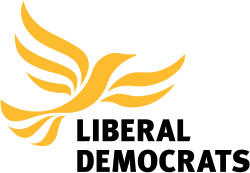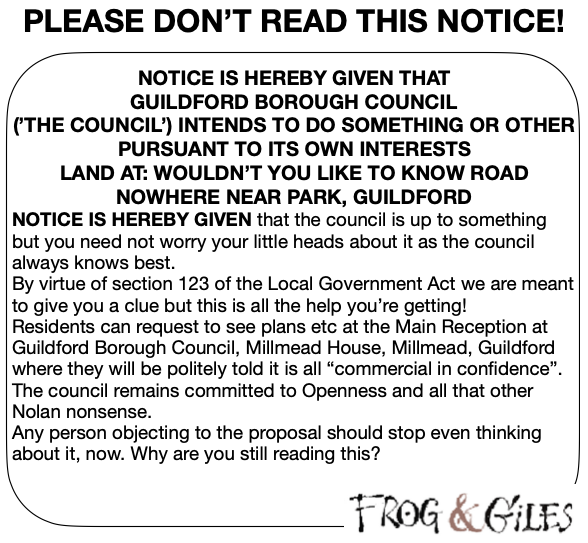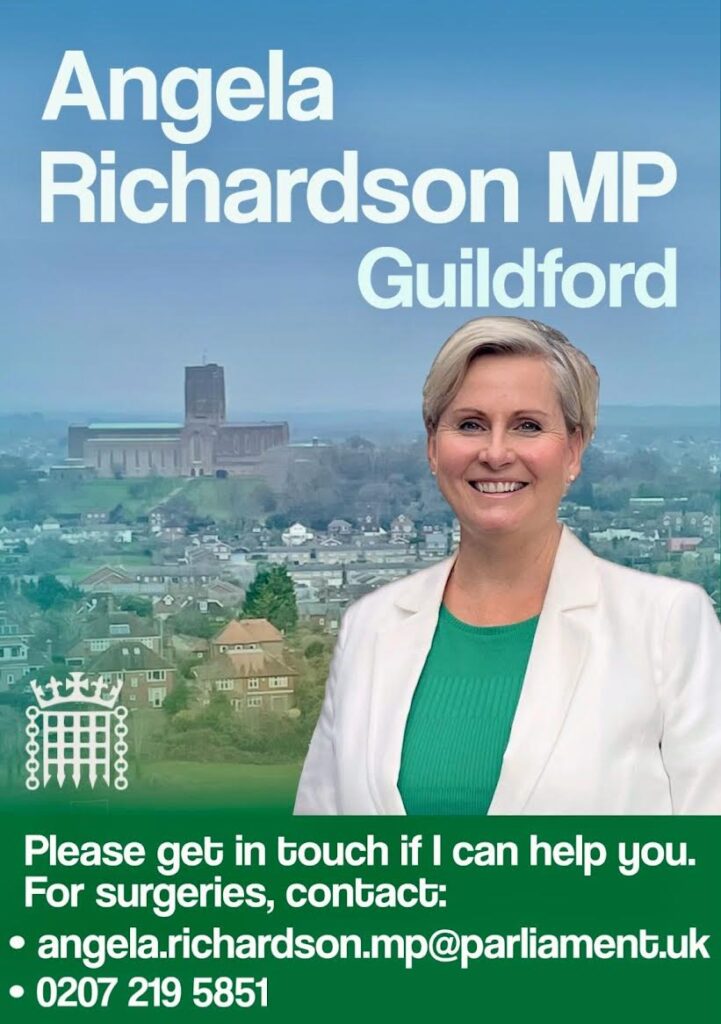- Stay Connected
 Abraham Lincoln
If given the truth, the people can be depended upon to meet any national crisis...
Abraham Lincoln
If given the truth, the people can be depended upon to meet any national crisis...
 Guildford news...
for Guildford people, brought to you by Guildford reporters - Guildford's own news service
Guildford news...
for Guildford people, brought to you by Guildford reporters - Guildford's own news service
Dragon Interview: How Green Is the Lib Dem Plan For Mole Valley?
Published on: 5 Dec, 2019
Updated on: 8 Dec, 2019
In the second of The Dragon NEWS series covering Mole Valley candidates in the north-east of Guildford borough, Chris Dick interviews Paul Kennedy of the Liberal Democrats

Paul Kennedy, Liberal Democrat candidate for the north-east of Guildford Borough, in Mole Valley.
Q. Since the 2016 referendum, some politicians have ignored or gone against the result of that vote. Your party has said it would, in effect, ignore the biggest democratic exercise in our country’s modern history. Why should Mole Valley voters trust your Party?
A. Nearly 34 million people voted in the 2016 referendum, 48% for Remain and 52% for Leave. The Conservative response has been entirely one-sided, ignoring the Remain majority in Mole Valley, and adopting a hard Brexit position which was not on the 2016 ballot paper. After 3½ years of chaos, and with nearly two million new people on the electoral register, we need a fresh vote before committing to the next stage. If we continue with Brexit, it will simply get worse.
Mole Valley voters know where the Lib Dems stand on Brexit: we oppose it. If we won a majority, we would have a democratic mandate to stop Brexit. Otherwise, we would seek a people’s vote on Boris Johnson’s deal, and campaign for Remain. Many people tell us the Brexit on offer with Johnson’s deal is not what was promised by Leave campaigners in the referendum. In fact, Johnson’s deal does not “get Brexit done” because we face years of uncertainty while a trade deal with Europe is attempted, with the strong possibility of no deal and a hard Brexit on WTO terms at the end of 2020. We need the safeguard of a people’s vote to avoid such an economic catastrophe.
 Q. The Independent reported this year: “Simply building more houses is not the answer to Britain’s housing crisis.” The Spectator wrote (2018): “Britain does not have a housing shortage. We have a problem with the cost not the availability of homes. This can’t be solved by building more houses, because it is not caused by an insufficiency of houses.” Do you agree with these views and, if so, what should the Liberal Democrat response be to this?
Q. The Independent reported this year: “Simply building more houses is not the answer to Britain’s housing crisis.” The Spectator wrote (2018): “Britain does not have a housing shortage. We have a problem with the cost not the availability of homes. This can’t be solved by building more houses, because it is not caused by an insufficiency of houses.” Do you agree with these views and, if so, what should the Liberal Democrat response be to this?
A. I agree with The Independent. We need more social housing, and rent controls to ensure secure affordable rented homes. That is why our national targets prioritise 100,000 social homes a year. The present free-market approach has led to the building of expensive executive homes on our green belt which is not the answer.
Q. If elected, what measures would you support to tackle climate change?
A. The Liberal Democrats have set ourselves ambitious but achievable targets for tackling climate change, including planting 60 million trees a year. By 2030, all homes will be insulated and 80% of our electricity will come from renewable sources. All trains and cars will be electric.
We would ban fracking, and stop all fossil fuel subsidies. Those would be applied instead to renewable energy sources to promote home insulation programmes and the replacement of gas boilers with heat pumps and other ultra-efficient systems.
We would cancel the government’s aviation policies and stop any further expansion of Heathrow or Gatwick. Those who frame the debate as a choice between Heathrow and Gatwick (such as my Conservative opponent) are simply enabling both.
Q. With a climate emergency declared by Surrey County Council would a Liberal Democrat government take measures to further protect our green belt and stop development of countryside and farmland outside the green belt?
A. Lib Dem Councils in Mole Valley and Guildford have both declared a climate emergency, but we are limited in what we can achieve without a change of government.
To protect our green belt, we need to change the Conservative government’s rules which impose high building targets while ignoring green belt constraints. Protecting green fields does not automatically help prevent climate change. We need homes to meet local need, and we should ensure they are built to high environmental standards and have access to sustainable transport.
Q. Would the Liberal Democrats stop or overturn decisions to build on places such as the former Wisley Airfield or Effingham Lodge Farm? Where do you personally stand on the Wisley Airfield development?
A. I oppose both. These are two different situations, but the root cause of both is the Conservative government’s dictatorial rules imposing high housing targets which ignore green belt constraints, and its refusal to invest adequately in infrastructure such as schools. Realistically, these decisions can be overturned only with a change of government.
The Local Plan which allocates the former Wisley Airfield for a new town was brought forward by the previous Conservative administration of Guildford Borough Council and forced through by the Conservative majority just one week before the local council elections in May. Lib Dem councillors sought to delay the decision until after the election but were outvoted. We have to change the Conservative planning law that puts our green belt at risk of speculative development if we don’t have a Local Plan in place with a five-year housing-land supply plan.
One of the Conservative Secretary of State’s reasons for approving the Effingham Lodge Farm development was the lack of an adopted Local Plan at the time and the lack of a five-year housing-land supply plan. The other main reason was the lack of government funding to rebuild and modernise our schools. The Conservatives effectively sold our green belt to build a new school rather than providing adequate government funding for schools. Sadly, work has already started on that site, e.g. removing trees. We need a change in planning law to prevent this happening again. The Liberal Democrats are committed to investing in schools and funding them properly out of the Remain bonus generated by stopping Brexit.
Q. The Planning Inspectorate and the Secretary of State for Housing have the power to overturn local borough council planning decisions and effectively sell off green belt tofor enable development projects, e.g. for a new school. Is there any democracy left in our planning system?
A. The Planning Inspectorate is the tool of the government of the day. Again we need a change in the law to respect local decision-making on planning.
Q. If the Conservatives win and Brexit proceeds how will it affect the residents of Mole Valley?
A. In the short term, we would be shielded from the full impact of Brexit by staying in the single market, albeit losing any say over its rules. Continuing uncertainty over the shape of any final trade agreement, as the Conservative Party continues to argue with itself, would mean a loss of investment, orders and indeed workers from the NHS, our farming sector and our services and high-tech industries.
Q. The more restricted trade deal envisaged by Boris Johnson would particularly hurt agriculture, services, IT and space industries, leading to job losses, higher prices and shortages. It would hit our economy by an estimated £70 billion a year, and Mole Valley residents would probably lose more than the £1,100 average per head. As individuals, what we would miss most is the personal rights and freedoms we now enjoy as European citizens, which protect us both from our own country and from other EU countries.
A. The NHS is under unprecedented strain as a result of Brexit, changes to staff remuneration, and a lack of funding in the face of an ageing population. In the years since the Brexit referendum, the NHS has lost more than 11,000 staff from EU countries, including 301 NHS staff from the Royal Surrey Hospital. This shortage could even worsen under Conservative plans to charge EU nationals a “nurse tax” of thousands of pounds to come and work for the NHS.
I would continue to fight for local primary care services such as the successful Liberal Democrat campaign I led to save a GP surgery in Fetcham, after the practice proposed its closure. I would support policies to reverse the general shortage of GPs and Brexit-related staff shortages in Mole Valley more generally.
Apart from stopping Brexit, we would raise income tax by a penny in the pound, to raise an extra £7 billion a year for health and care, and give mental health equal treatment.
This is the full list of candidates standing in Mole Valley:


















Dr Patricia Hawksworth
December 10, 2019 at 5:39 pm
Rather short on detail as to how these aims are to be met.